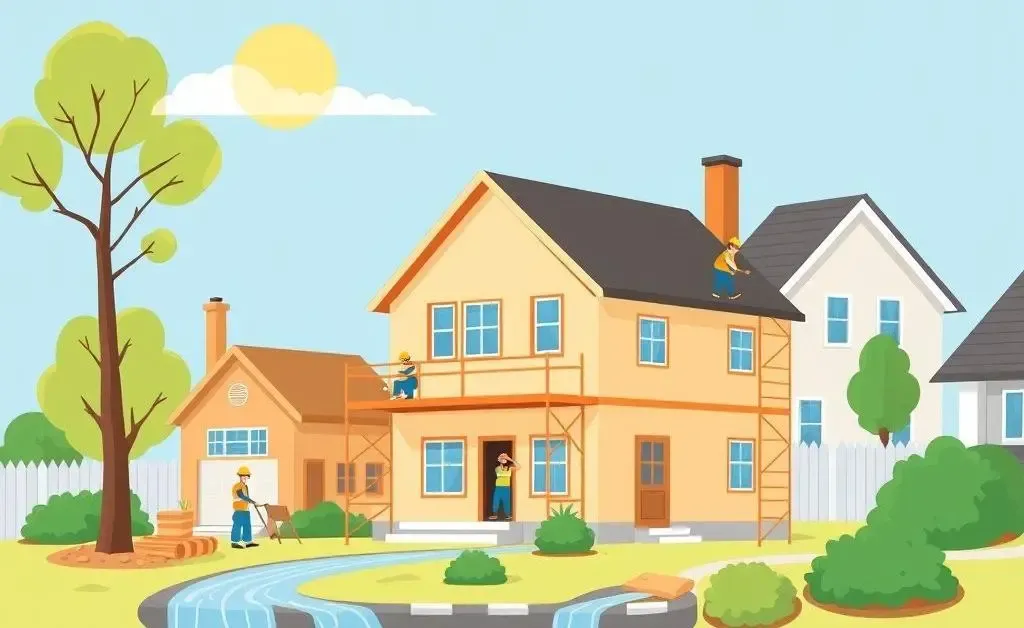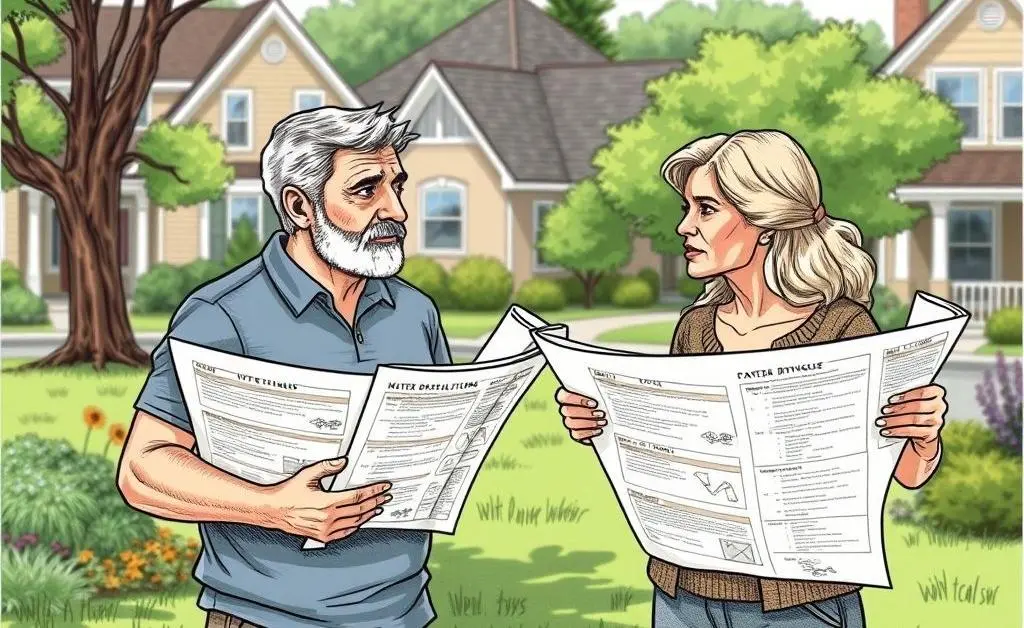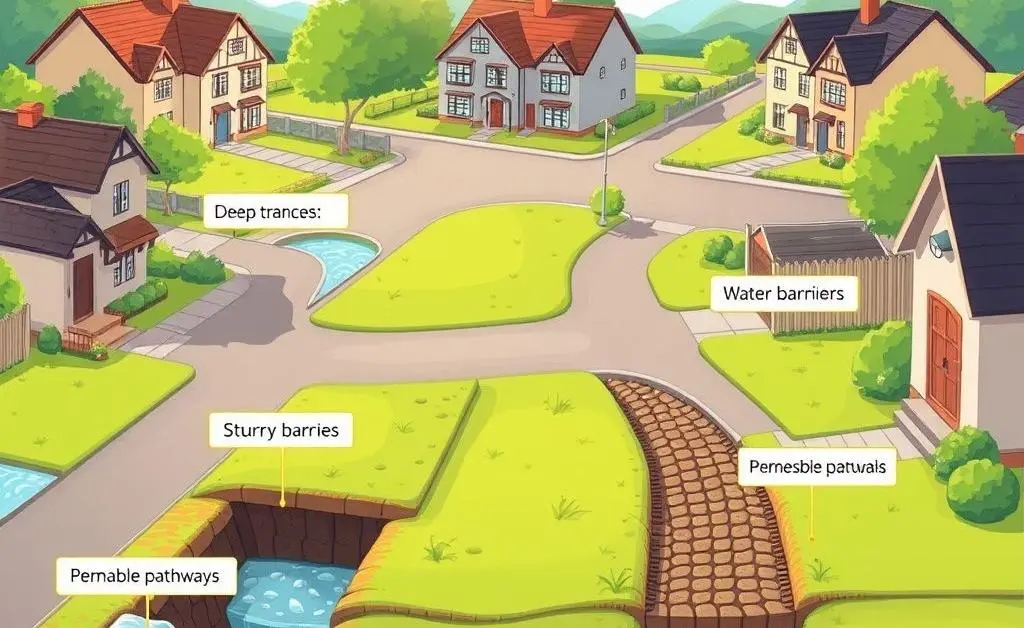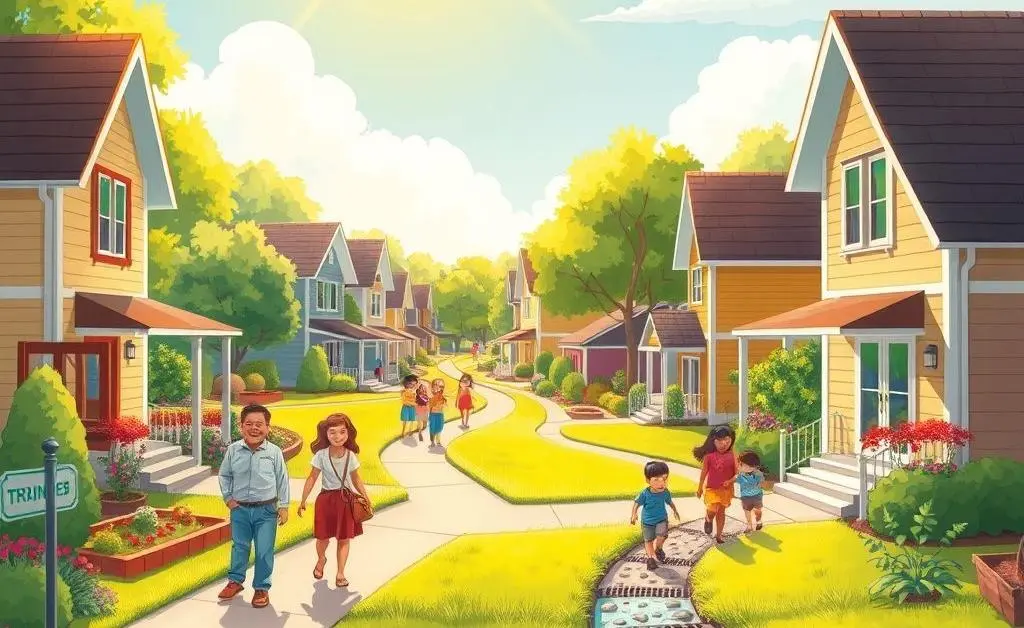Navigating Neighborly Waters: What to Do When New Construction Causes Flooding
Learn how to handle property flooding issues when your neighbor's new construction affects your home.

Ever had your lawn resemble a small pond after a neighbor starts construction? No need to worry—you're not alone, and there are ways to navigate this tricky situation.
Understanding the Source of the Issue
It's easy to feel overwhelmed when you spot a new stream heading straight for your petunias, but knowing the source of the issue is half the battle. Typically, new construction can redirect water flow, causing unintentional flooding. Before taking any action, try to observe where the excess water is coming from. Look for concentrated runoff areas, or check if your once-flat yard now resembles a slip 'n slide.

Steps to Take Before Calling in the Professionals
The first step is often to have an open conversation with your neighbors—it might seem daunting, but it's probably the most amicable solution. Here's a quick checklist:
- Introduce yourself and your concern in a calm and friendly manner.
- Share observations about the water flow and how it's impacting your property.
- Collaborate on feasible solutions that work for both parties.
After a neighborly chat, you might find that they are just as eager to fix the issue.
Real-life Relatable Moment
Imagine this scenario: You arrange a casual gathering with your neighbor, and as you sip lemonade in the yard, you both watch the water trickling from the construction site. "I've noticed a new water feature in my backyard," you quip. Before long, plans for trenches and water drains are flowing as freely as the lemonade. Funny how a little humor can solve most problems, right?

When to Bring in Experts
If after friendly negotiations the water still rises, you might need to call in reinforcements. Licensed surveyors or landscape engineers can suggest more technical solutions, like altering the grading or installing drainage systems. It might cost a bit upfront, but it’s an investment that can save you plenty of headaches—and waterlogged tulips—in the future.
Conclusion
When new construction affects your property, communication and early action are crucial to resolving these watery woes. Have you faced a similar situation? How did you handle it? Feel free to share your experience or water management tips in the comments below!





